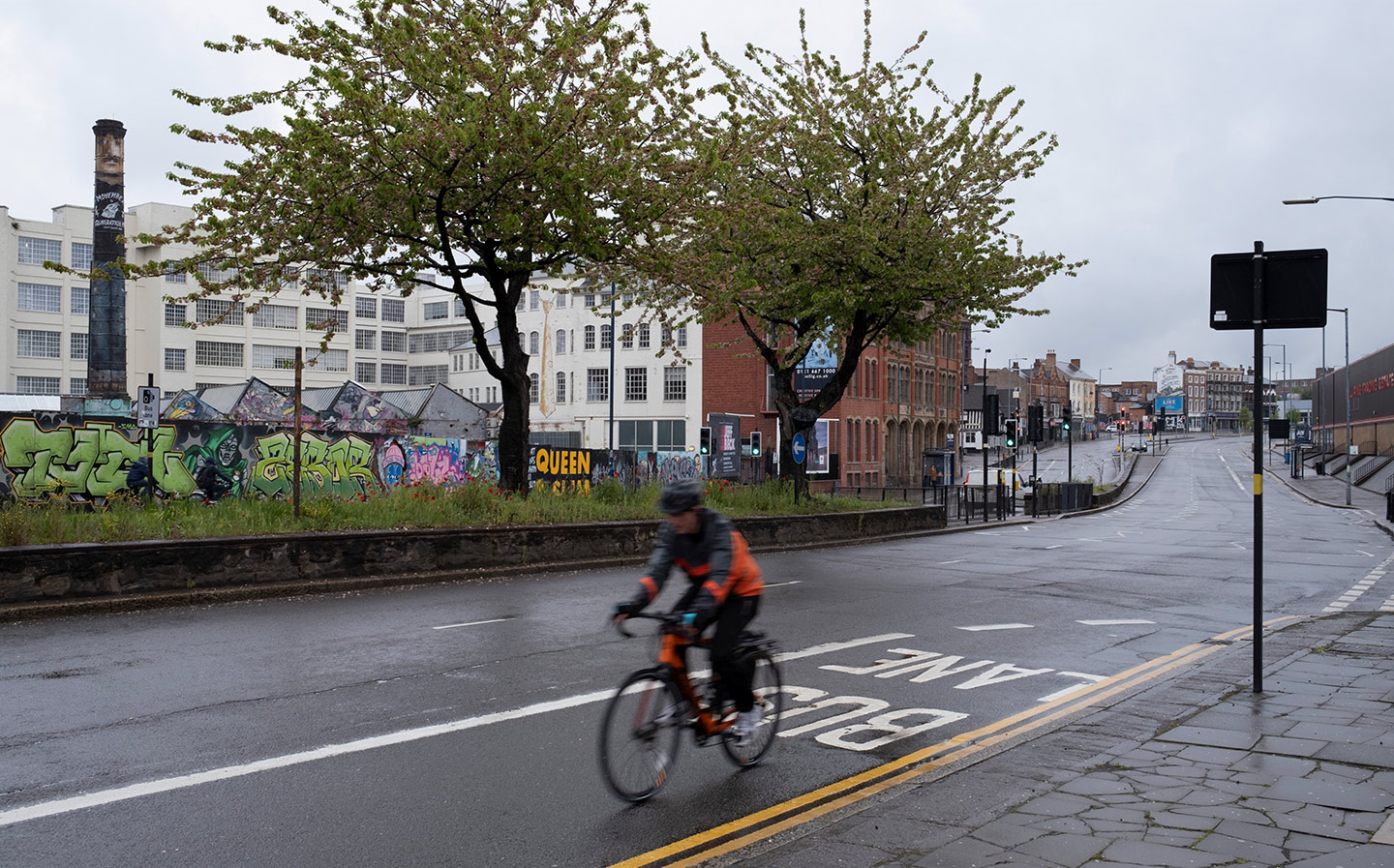Birmingham cyclists asked to collect data on near-misses and problem junctions
High-tech cycle lights will record accident hotspots and potholes
CYCLISTS in Birmingham are being asked to collect data on road conditions and dangerous driving so that town planners can make changes intended to save lives.
The Department for Transport is working with the Royal Society for the Prevention of Accidents (RoSPA) and See.Sense, a company that makes high tech “connected” cycle lights, to help map the streets in a scheme called Cycle Smart Brum.
Around 200 cyclists will be sent the GPS-enabled See.Sense bike lights, which will gather data as riders travel around the city. The lights include sensors that can monitor the bumpiness of road surfaces as well as “potential problem junctions” and crashes, enabling local authorities to identify and prioritise infrastructure projects.
The lights are linked to mobile phone apps, which cyclists can use to record near-misses by cars, vans and trucks. According to RoSPA, the app prompts users with a survey at the end of each journey, where they can make a report by dropping a pin into the map, tagging the incident and using a free text box to provide further information.
The Birmingham scheme follows similar projects involving See.Sense in Manchester, Dublin and Milton Keynes. However, RoSPA said the new scheme will benefit from its own road safety insight. A spokesperson said: “We want to see if the methodology can be replicated by other highway authorities to identify non-reportable STATS 19 incidents; i.e. we hope that this will mean in future that we don’t have to wait for an incident to happen before interventions can be put into place.”
See. Sense believes cyclists experience near misses and road rage on a daily basis, but most of the time these ordeals go undetected.
“Statistics would suggest that cycling accidents or ‘close call’ incidents are relatively uncommon,” it said in a blog post. “Why? Because in many cases the jolts, bumps, falls and scrapes are brushed off without any report being logged and archived.”
Cycle Smart Brum launches today and cyclists who regularly ride into or around the city and are keen to get involved can already volunteer via rospa.com/CycleSmartBrum. The 200 successful applicants will be sent an intelligent See.Sense bike light for free, though data won’t be collected until the coronavirus lockdown is lifted.
Nick Lloyd, RoSPA’s head of road safety, said: “This is a cutting-edge project that uses the latest technology to develop data-driven insights that will make Birmingham’s road safer for cyclists, and we’re really excited to get started.
“If you already commute by bike, ride for work, or regularly cycle in Birmingham, then please register your interest in taking part.”
Cyclist Dr Suzanna Bull was killed when she was struck by a lorry at a junction on Pershore Road, Birmingham, in 2017. Her brother Drew, who was cycling with her at the time, said: “This project provides a great opportunity to help protect cyclists in and around Birmingham and to prevent death and serious injury.
“Cycling on roads brings certain hazards but hopefully together we can minimise the risk to us all. If this project helps to make cycling safer and save even one life then it will be worth it. If you are a cyclist in Birmingham then I would encourage you to sign up as this could help save the life of someone you love, or even your own life.
“I lost my sister as we cycled through Birmingham, after a lovely ride around the surrounding countryside. Since Suzie died and the trial that followed, I have looked for ways to help make cycling safer for everyone so I am so pleased to be supporting RoSPA in this project.”
New ‘death by dangerous cycling’ law would increase maximum jail sentence from two to 14 years
Coronavirus: Cars to be banned from roads for safer exercise





